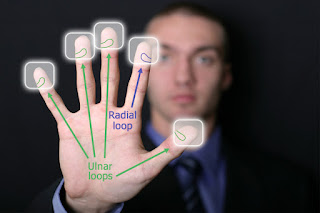Astonishing Facts about Fingerprints
What if you get to know about the
bunch of wonders you are carrying on your fingertips? Yes, that’s true. Well
you must not over assume it like your fingers might work as a magic wand but still
you have to glance over some outrageously astonishing and amazing facts about
fingerprints. When is the last time you noticed your fingerprints closely when you
went to submit them to the best Fingerprinting
Services in Toronto? Believe
it or not, there are many unexpected facts that you don’t know about your
fingerprints. Therefore, in order to discover more, Read more;
It is a Study:
Yes! Fingerprinting is not just a
source of an individual’s identification, it is actually a complete study that
is known as Dactyloscopy. This word is actually taken from Greek with a
combination of two. Daktylos means finger and Skopein means to examine, this is
how the word dactyloscopy came into an existence.
How do you paste it somewhere?
We are able to paste our fingerprints
only by touching objects, how is that! It is actually all because of the
natural oils within our skin. This natural oil and the salt of sweat glands
combine to make this print possible.
Fingerprints Insights:
Do you know that fingerprints have been
classified in three major categories? These categories are; whorls, arches and loops.
This classification was actually introduced by Sir Francis Galton. Furthermore,
your fingerprint has a lot to do with your personality. Yes! Fingerprints do
represent the personality traits of an individual.
Fingerprints of Koala:
This one is really an interesting
one. It is recorded that koala happens to have the similar fingerprints as of
humans. Since koala has two thumbs that doesn’t make it reasonable enough to
compare with humans otherwise fingerprints are almost the same.
Fingerprinting identification Flashback:
This RCMP Fingerprinting identification system has the history of about
150 years. It was first used for the identification in 1858 by Sir William
Herschel. He actually used the thumb impression to identify and verify his
workers. Furthermore, this system was also used for the prisoners of India.

0 comments:
Post a Comment